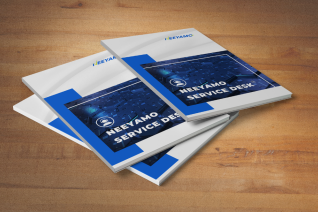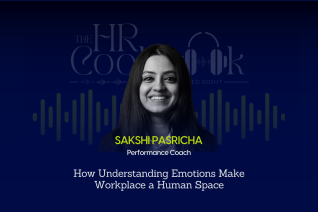Establish your presence globally with Neeyamo as we help you go beyond borders to manage your international payroll and hire new talent in Malta.
Overview
A country that is almost a cultural concoction - Malta’s history is filled with influences from the Phoenicians, Romans, Arabs, Knights of St. John, and the British Empire. The cultural diversity is reflected in their architecture, art, language, food, and various other traditions throughout the archipelago. This is also reflected in their diverse and unique workforce.
Do your organization’s expansion plans require you to hire employees in Malta? Do you lack a physical entity in the country – a key requisite to hire local talent? Neeyamo - Global Payroll Providers assists organizations worldwide with onboarding and managing employees in Malta - processing workforce payroll and payroll accounting, managing local compliance requirements, benefits, and more.
Tools And Instances
Facts And Stats
Capital
Valletta
Currency
Euro (EUR)
Official Language
Maltese, English
Fiscal Year
1 January - 31 December
Date Format
DD/MM/YYYY
Country Calling Code
356
Time Zone
UTC +01:00
Global Payroll
Overview
What is Global Payroll?
Handling payroll for a widespread workforce can pose a significant challenge for any organization, and the added complication of compliance can make things worse. If companies spend more time processing payroll, it directly impacts day-to-day operations and their overall productivity. The solution to this is to outsource payroll services using an outsourced payroll provider such as Neeyamo.
What is a payroll system?
Over the years, Neeyamo, an International Payroll Provider, has observed these complexities and strived to provide global payroll solutions through a single technology platform – Neeyamo Payroll. Neeyamos global payroll systems ease the process for companies looking to outsource their global payroll requirements and aid them in maneuvering the tricky payroll system in Malta. Neeyamos payroll software provides the perfect solution for all your global payroll needs – for employees working in primary geographies, the long-tail region, remote or internationally located.
How is payroll calculated?
Neeyamo acts as your personalized Payroll Calculator. Ensuring adherence to local regulatory requirements using multi-level controls. Providing timely and accurate payroll, courtesy of our experts worldwide and using a tech-based integrated smart helpdesk solution with seamless support experience manned by payroll experts - Neeyamo has all your payroll needs covered.
Payroll Taxes
Payroll tax is the percentage amount retained from an employee's salary and paid to the government to invest in the general population's welfare. These are statutory in nature and are levied from both the employer and employee. Additional statutory contributions are made by employers towards aiding both short-term and long-term benefits for their employees.
Employee Taxes
Social Security Contributions:
- Class 1 (Employees):
For persons born from 1 January 1962 onwards:
- 10% on basic weekly wage between €213.55 and €532.28.
- Fixed weekly rate of €53.23 on basic weekly wage above €532.29.
For persons born before 1 January 1962:
- 10% on basic weekly wage between €213.55 and €423.07.
- Fixed weekly rate of €42.31 on basic weekly wage above €423.07.
- Class 2 (Self-Employed):
The fixed annual rate of €1,456.44, payable in quarterly instalments.
Maternity Fund Contributions:
0.3% on basic weekly wage for all employees and self-employed.
Employee Income Tax:
Single resident taxpayers (or married couples opting for a separate computation):
0.00% - up to 9,100 EUR
15.00% - from 9,101 EUR to 14,500 EUR
20.00% - from 14,501 EUR to 19,500 EUR
25.00% - from 19,501 EUR to 60,000 EUR
35.00% - 60,000.01 EUR and above
Married resident taxpayers:
0.00% - up to 12,700 EUR
15.00% - from 12,701 EUR to 21,200 EUR
20.00% - from 21,201 EUR to 28,700 EUR
25.00% - from 28,701 EUR to 60,000 EUR
35.00% - 60,000.01 EUR and above
Parent rates:
0.00% - up to 10,500 EUR
15.00% - from 10,501 EUR to 15,800 EUR
20.00% - from 15,801 EUR to 21,200 EUR
25.00% - from 21,201 EUR to 60,000 EUR
35.00% - 60,000.01 EUR and above
Employer Taxes
Employer Payroll Contributions:
- 10.00% - Social Security up to annual salaries of 25,986.00 EUR
- 49.97 EUR (flat rate per week) - Social Security for annual salaries exceeding 25,986 EUR (providing the employee was born on or after 1.1.1962)
Payroll Cycle
Overview
Undoubtedly, payroll is a critical process for any organization. The pay cycle in Malta refers to the period an organization pays its employees, which can vary depending on the pay frequency the organization chooses to adopt.
Frequency
Salaries are paid every 4 weeks on regular payment schedules.
13th Month Cycle
There are no provisions in the law regarding 13th salaries.
Global Work
Overview
EOR: Meaning
An Employer of Record (EOR) service provider helps you eliminate the hassle of handling complexities while onboarding a new employee in an international location. They help bridge the gap that otherwise mandates organizations to have a local registered entity and a local bank account prior to making a job offer to an international hire.
An Employer of Record / EOR services provider acts as a legal employer, facilitates salary payments, and manages other statutory requirements such as health insurance, payroll taxes, and employee benefits, ensuring compliance with local tax laws and regulations.
This allows organizations to focus on collaborating with the employees in Malta for operational tasks, with the knowledge that they have a cost-effective solution to support their global payroll & HR requirements as they continue their global expansion.
Neeyamo, a global payroll provider using its Cloud-based HR and Payroll software, strives to provide its customers with a seamless employee management experience and offers global payroll compliance and EOR aspects with our Global Payroll Technology Stack.
HR Mandates and Practices
Minimum Wage
Effective January 1, 2025, the weekly minimum wage in Malta will increase to €221.78 for employees aged 18 or older. This represents an increase from the current rate of €213.54.
Overtime
The Wage Regulation Order (WRO), which sets varied overtime standards by industry, governs overtime. If an employee is not covered by the WRO, overtime is calculated at 150% of the regular pay rate for work performed more than 40 hours per week over four weeks.
However, this is averaged over four weeks or a shift cycle, so working less than 40 hours in one week might affect your entitlement to overtime the next week.
Data Retention Policy
- Financial Documentation - The retention period will be for 10 years
- Collective Agreements - Physical and Electronic files will be retained for 8 years from the date the collective agreement expires
- Termination Cases - Physical and Electronic files will be retained for 5 years from the date the case is solved
Hiring and Onboarding Requirements
Hiring
Employers must abide by the provisions governing discrimination legislation and ensure that the selection and recruitment procedures relating to the processing of employment applications, advertising, interviewing, short-listing, selecting or rejecting, observe the principle of equal opportunities, and that applicants are fairly selected on merit and suitability for the job in question.
An employer may not, for example, engage or select a person who is less qualified than a person of the opposite sex, unless the employer can prove that the action was based on acceptable grounds related to the nature of the work or on grounds related to previous work performance and experience.
Onboarding
Any new employee should provide the following information:
- a legally valid identification document number,
- sex,
- address of the employee
Probation
In the case of a renewal of a fixed-term contract for the same functions and tasks as the previous fixed-term contract, there shall be no new probationary period.
A fixed-term contract cannot be shorter than six months unless there is an objective reason based on precise circumstances that need to be listed in the contract itself.
In the case of a fixed-term contract with a duration of between six and fifteen months, the probationary period shall be calculated on the basis of two months per six-month contract duration.
For a fixed-term contract exceeding fifteen months duration, probation shall be six months.
If the fixed-term contract is of a duration less than six months, the probationary period shall be one-third of the duration of the contract.
Probation can be shorter by agreement between the parties.
Probation is to be suspended in the case that the employee avails himself of leave for more than two weeks. Probation then needs to be extended to a duration corresponding to the amount of leave taken. No dismissal can take place during the suspended period of probation.
Leave
Public Holidays
There are 14 public holidays.
- January 1 - New Year's Day
- February 10 - Feast of Saint Paul's Shipwreck
- March 19 - Feast of Saint Joseph
- March 31 - Freedom Day
- April 7 - Good Friday
- May 1 - Labour Day/May Day
- June 7 - Sette Giugno
- June 29 - Feast of Saints Peter and Paul
- August 15 - The Feast of Mary's Assumption
- September 8 - The Feast of Our Lady of Victories
- December 8 - Feast of the Immaculate Conception
- December 13 - Republic Day
- December 25 - Christmas Day
Sick Leave
The Wage Regulation Order regulates sick leave (WRO). If an employee is not protected by the WRO, he or she is entitled to two weeks of paid sick leave per year. After two weeks, an employee may be eligible for a sickness benefit through Social Security. To use sick leave, you must produce a medical certificate.
Maternity Leave
In Malta, maternity leave is for 18 weeks and begins four weeks before the due date. Leave must be taken at least 6 weeks following the birth. For the first 14 weeks, the employer is liable for paying 100% of the wages.
Paternity Leave
There are no provisions in the law regarding paternity leave.
Parental Leave
Until the child reaches the age of eight, parents are entitled to four months of paid leave for the birth of a child, adoption, fostering, or general care. To be eligible at least 12 consecutive months.
Other Leave
Annual Leave:
Effective January 1, 2024, There have been modifications to the annual leave entitlement for workers in Malta.
- Employees with a standard 40-hour workweek receive a substantial 240 hours of paid vacation leave.
- This includes a basic 192-hour leave provision.
- An additional 48 hours are granted in lieu of six Public Holidays that fall on weekends.
- The total paid vacation entitlement amounts to 30 days.
Pro-Rated Consideration:
The entitlement is subject to pro-ration in cases of reduced working hours.
Bereavement Leave: All employees are allowed paid bereavement leave on the occasion of the death of a close family member. For employees who are not covered by the Wage Regulation Order, 1 working day is allowed.
Marriage Leave: Employees are entitled to paid marriage leave. For employees who are not covered by the Wage Regulation Order, 2 working days are required.
Termination
Overview
Employers can terminate a fixed-term contract by giving the following reasons – business, personal, or worker misconduct. It requires notice and a written explanation for the termination. If the reason is misconduct, a warning needs to be given, and the employee gets a chance to explain their actions.
In Malta, an employer can terminate an employee for cause, redundancy, or due to reaching the age of retirement. If requested by an employee who has completed at least one month of employment, the employer must provide an employment certificate stating the dates employed and a description of duties (the reason for termination must also be included).
Also, upon termination from employment, an employee has the right to claim financial compensation for any balance of outstanding leave that is due.
Notice Period
The amount of notice required is dependent on the length of service and reason for termination, as follows:
- If an employee has less than one month of service, no notice period is required
- For an employee with between one and six months of service, one week of notice is required
- For an employee with between six months and two years service, two weeks notice is required
- For an employee with between two- and four years service, four weeks notice is required
- For an employee with between four- and seven years service, eight weeks notice is required
- For an employee with between seven- and eight years service, nine weeks notice is required
- For an employee with between eight- and nine years of service, ten weeks notice is required
- For an employee with between nine- and ten years service, 11 weeks notice is required
- For an employee with more than ten years service, 12 weeks notice is required
It is possible to pay the employee in lieu of notice. However, suppose an employee is due to work the notice and chooses not to work during this period or resign without notice. In that case, they are obligated to pay the employer 50.00% of the wages that would have been earned during the notice period.
Severance Pay
There are no statutory laws on severance pay.
Visa
Overview
Malta’s immigration law provides several options for employers of foreign nationals. Malta is a member of the European Union (EU) and the Schengen Area. Requirements, processing times, employment eligibility, and benefits for accompanying family members vary by visa classification.
Business visitors to Malta typically use a local version of the Schengen C Visa unless they are visa-exempt based on their nationality. The Schengen Area limits stay to 90 days within 180 days.
For work, foreign nationals traveling to Malta require a Single Permit, which combines work and residence authorization. The Single Permit can be issued for one year and is renewable.
Employee Background Checks
Legal and Background Checks
With regards to background checks, Regulation (EU) 2016/679 of the European Parliament and of the Council, the General Data Protection Regulation (GDPR), and the Data Protection Act (DPA) do not dictate whether an employer can carry out such checks. Once pre-employment vetting occurs and the applicant's personal data is collected, the GDPR comes into play. For instance, any information about an actual or alleged criminal offense constitutes personal data. To process such data, an employer must have a lawful basis for processing, such as a legal obligation or a lawful authority, and failing any of the two, consent.
The GDPR recognizes that consent may be distorted by the power imbalance in the employee-employer relationship. It must be made clear that any offer of employment is not dependent upon consent. An applicant should be given the opportunity to refuse consent without that being prejudicial to their appointment.
Succinctly, any information that the employer gathers in making their background checks must be kept secure and confidential and not be kept for longer than is needed for its legitimate purpose. The applicant has the right to ask to see any information the company may hold on them, which must be supplied within one month.
The employer can hire a third party to conduct such background checks as long as the applicant is made aware of this controller-processor relationship (as defined in the GDPR) between the employer and the third party, where the controller of such data is the prospective employer. The processor is only acting on behalf and the explicit instructions of the controller.
Last updated on December 24, 2024
If you have any queries or suggestions, reach out to us at irene.jones@neeyamo.com
Have Queries? Get In Touch With Us
Get in touch with one of our experts and take a quick demo of our services









